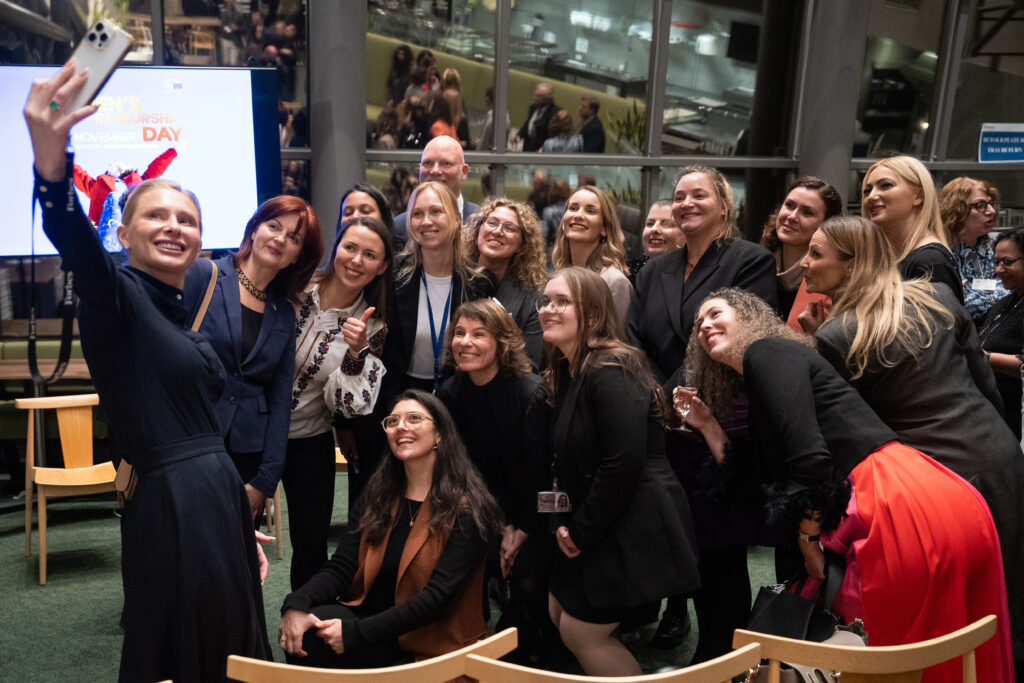Women’s Entrepreneurship Day:
Europe’s Female Leaders and the Challenge of Competitiveness
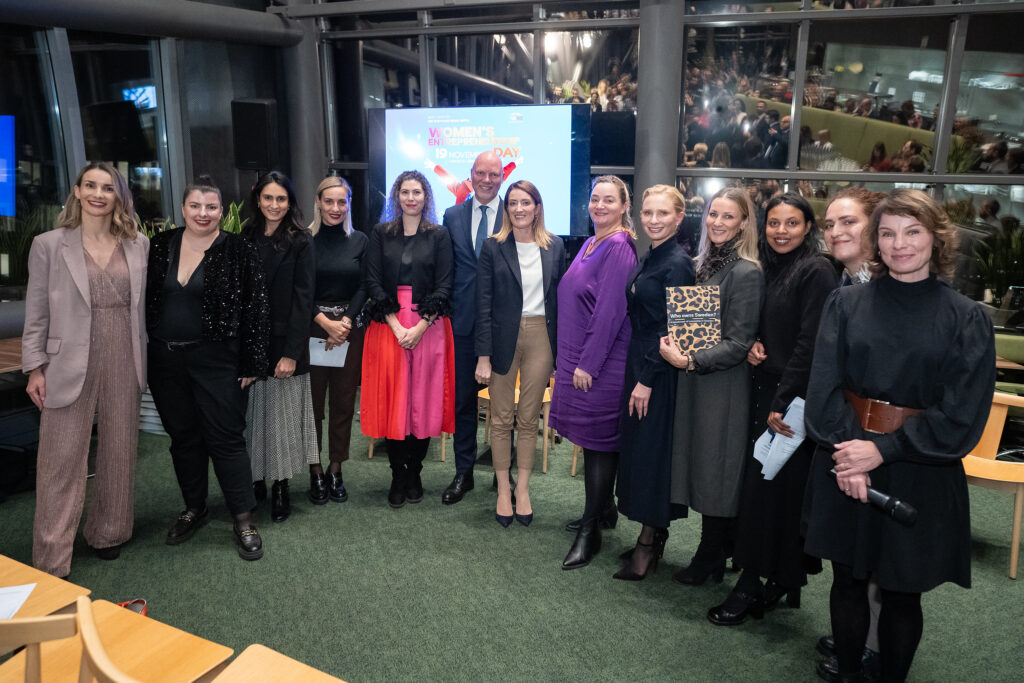
On the evening of Tuesday, November 19th, 2024, Jörgen Warborn, Member of the European Parliament and President of SME Europe of the EPP, hosted a special reception to celebrate Women’s Entrepreneurship Day. The event highlighted the vital role of women in business and included engaging panel discussions focused on Europe’s Female Leaders and the Challenge of Competitiveness. Roberta Metsola, President of the European Parliament, was among the guests, offering her support and valuable insights to mark Women’s Entrepreneurship Day.
The discussion, moderated by Zuzana Pučikova, Entrepreneur, Strategy Director and Head of Tech at Acumen; EU Climate Pact and Diversity Ambassador, featured an exceptional lineup of speakers including Giulia Rocchi, Coordinator of the Eurochambres Women’s Network; Valeryia Despaihne, Adviser, Jobs & Skills, EuroCommerce; Natasha Jamal, Vice-President, Social Impact, Mastercard Strive; Eleonora Meleti MEP, Coordinator of the Women’s Rights and Gender Equality Committee for EPP Group; Christina Teusl and Denise Vorraber, Co-founders of FEMINDS; Olga Diakova, Co-founder of Impact Force; Jennie Sinclair, Founder of the Ownershift Think Tank; Georgia Brooks, Founder and CEO of The Nine; and Florence Raes, Director of the UN Women Brussels Office
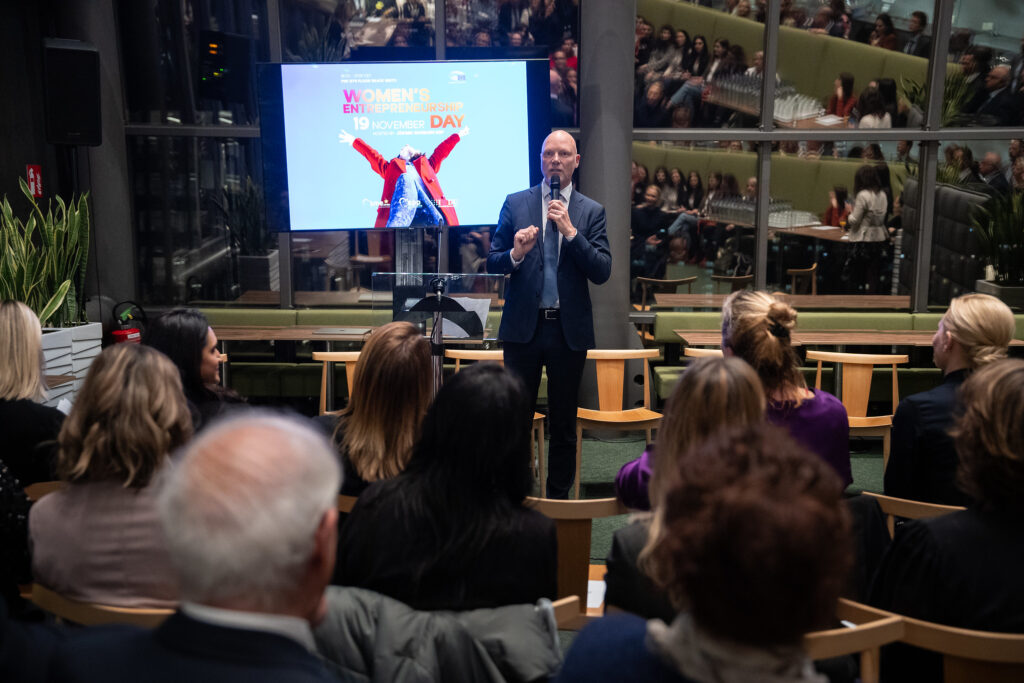
In his welcoming remarks, Jörgen Warborn MEP highlighted Europe’s current growth challenges, noting how the continent has fallen behind other global economic powers over the past two decades. He emphasized that this stagnation poses significant risks to Europe’s long-term prosperity, as resources for critical sectors like infrastructure, healthcare, education, and defense ultimately rely on economic growth driven by businesses. Mr. Warborn pointed to SMEs as the cornerstone of the European economy and stressed the enormous, untapped potential of female entrepreneurs in driving innovation and job creation. He expressed confidence that discussions like this one are vital to unlocking that potential and fostering a more prosperous future for Europe.
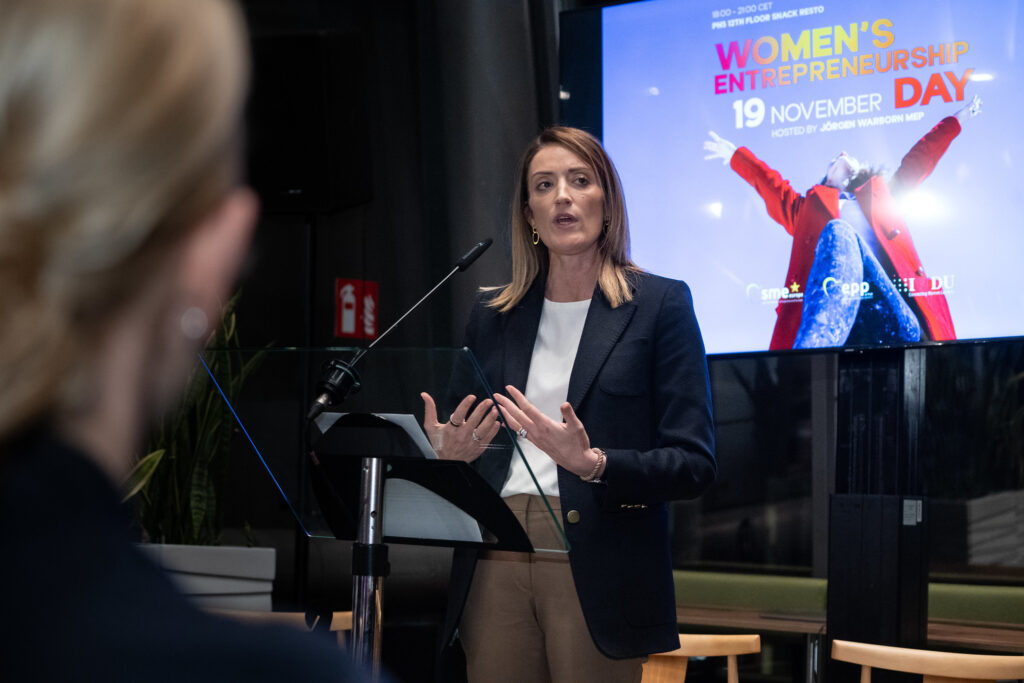
In her opening remarks, Roberta Metsola highlighted the importance of Women’s Entrepreneurship Day in advancing Europe’s growth strategy by placing women at its core. She celebrated the progress made, including increased venture capital for women, a tenfold rise in women-founded unicorns, and the growing number of women entrepreneurs whose businesses are thriving and vital to Europe’s economy. However, she noted there is still much work to be done, citing persistent challenges such as funding gaps, gender stereotypes, and the underrepresentation of women in entrepreneurship. President Metsola emphasized the need to address these barriers, stressing that understanding the constraints women face when deciding to become entrepreneurs is essential. Women-led businesses, she pointed out, are key drivers of innovation, transformation, and inspiration for future generations. Equality, she insisted, must remain at the heart of everything Europe does to unlock the continent’s full potential. While commending the European Parliament’s efforts on gender equality, including policies to advance women in leadership, she called for continued action to break down barriers and ensure equality becomes a reality, not just an aspiration. Ms. Metsola reaffirmed the shared commitment to empowering women as critical to Europe’s prosperity and growth.
The first panel, titled “Rebooting Europe: The Role of Women Entrepreneurs Amid Economic Uncertainty” explored the EU’s overall competitiveness and examined the current business landscape for women entrepreneurs.
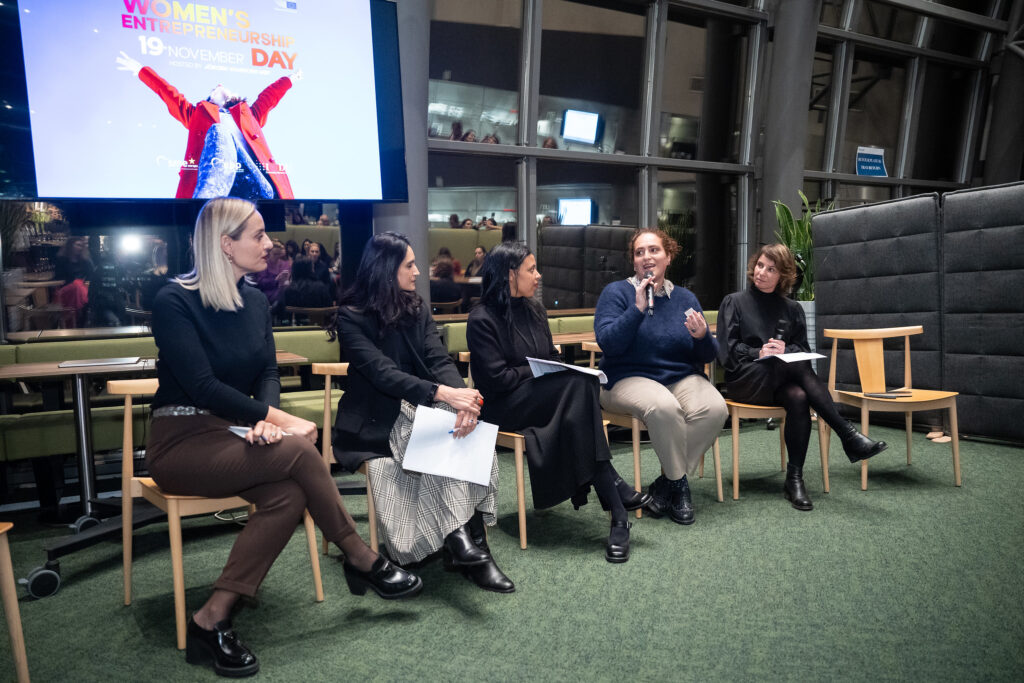
Giulia Rocchi highlighted Eurochambers efforts to support women entrepreneurs through initiatives like a dedicated women’s network and regular surveys, providing valuable insights directly from women entrepreneurs, helping shape chamber services and guide dialogue with European institutions. Giulia noted that while many helpful initiatives already exist, there is often a lack of communication, leaving women unaware of available tools, such as financial support programs. She emphasized key challenges, including the need for greater financial credibility, particularly in sectors where women are underrepresented, and the importance of providing targeted training to help women entrepreneurs develop technical skills and requalify for new industries. Giulia also underscored the critical role of networking, noting that women often lack the connections essential for entrepreneurial success. Lastly, she shared insights from a post-COVID survey, which revealed that remote work, while often seen as a challenge, was a positive support for some women entrepreneurs by offering greater flexibility. Giulia concluded by emphasizing the importance of nuanced, data-driven approaches to better address the diverse needs of women entrepreneurs, with plans to publish their findings early next year.
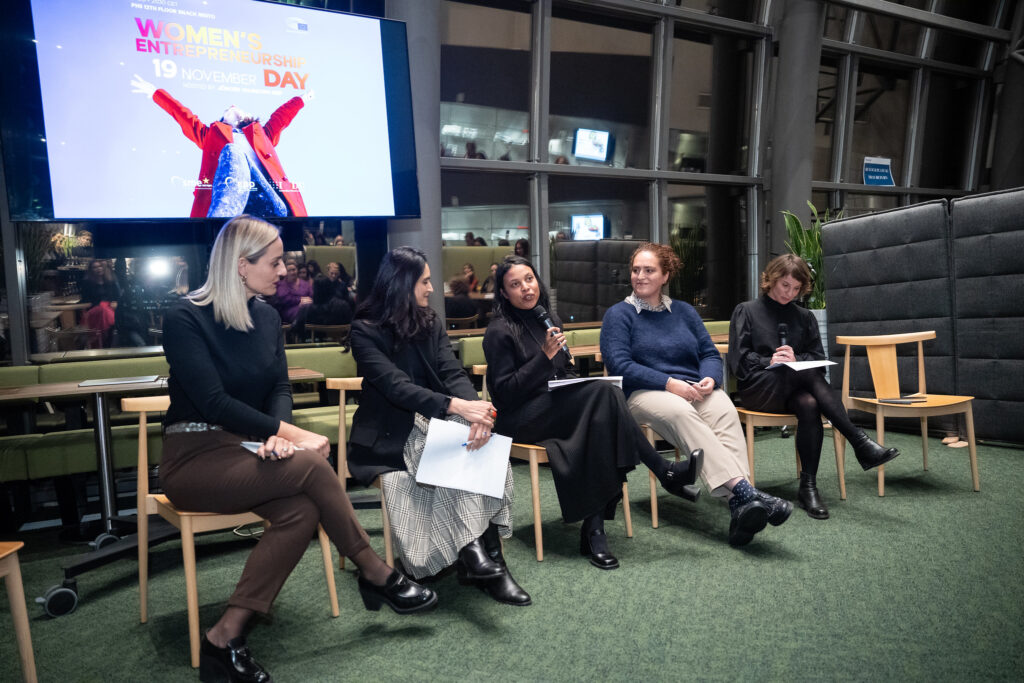
Valeryia Despaihne, representing EuroCommerce, highlighted the significant role of women entrepreneurs in retail and wholesale, where one in five women-led businesses operate, contributing to local communities and rural development. She shared the story of a shop owner in Spain whose business, vital to her small town, closed due to challenges like poor infrastructure and limited banking access, emphasizing the need for greater investment in rural areas. Valeryia also addressed key issues facing women entrepreneurs, including limited access to finance, regulatory burdens, and insufficient childcare support. She called for targeted programs and better infrastructure to unlock the potential of women in retail and wholesale, ensuring their vital contributions to society and the economy.
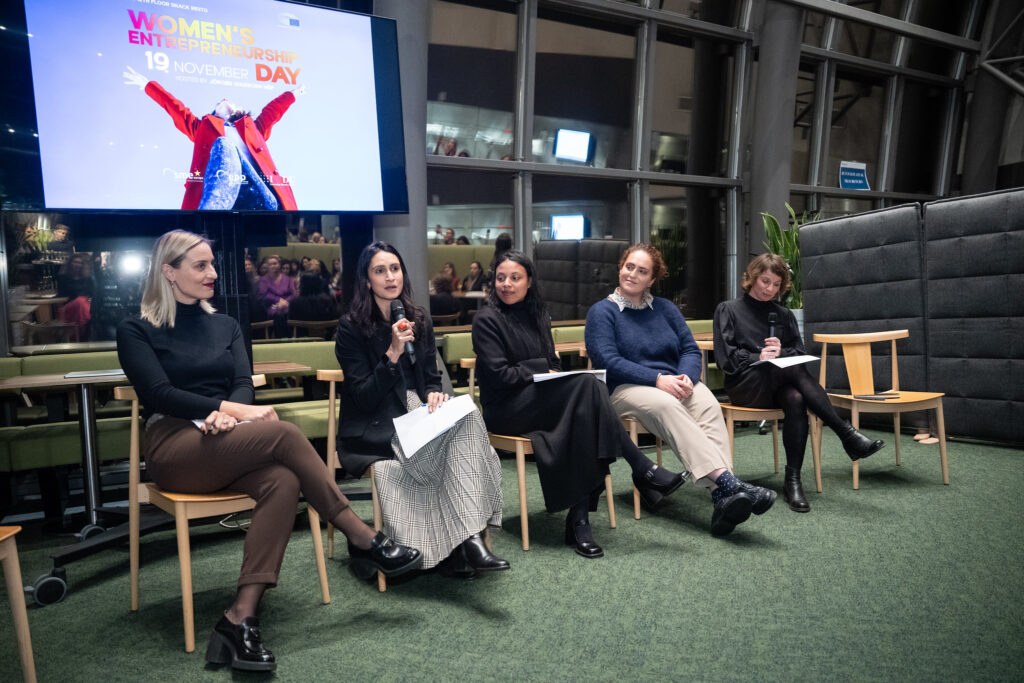
Natasha Jamal, from the MasterCard Center for Inclusive Growth, highlighted the need to address systemic barriers for women entrepreneurs, including disproportionate domestic responsibilities and limited access to childcare and flexible work policies. She emphasized the importance of tackling funding gaps, with only 1.1% of EU venture capital going to women-led businesses, and called for initiatives like female-run VC funds and increased representation of women in funding decisions. Natasha also stressed designing tailored programs that leverage mentorship, peer networks, and technology to support how women learn and build trust in digital tools. She concluded by underscoring the importance of partnerships among the private, public, and NGO sectors to drive systemic change and create opportunities for women entrepreneurs.
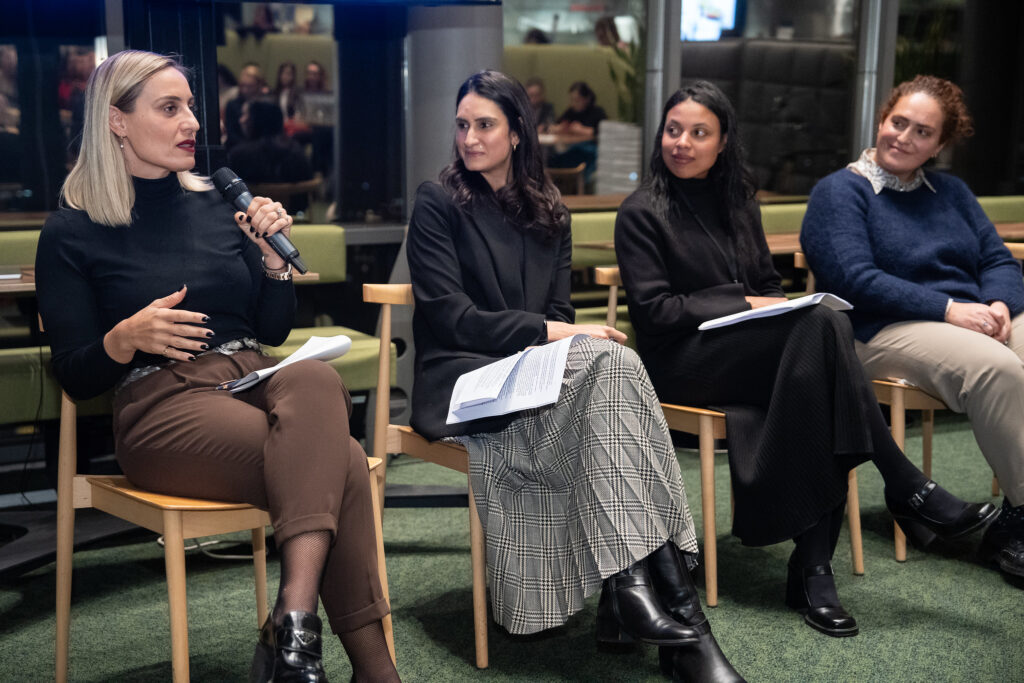
Eleonora Meleti MEP stressed the importance of supporting women entrepreneurs by addressing practical barriers like the gender pay gap, limited access to funding, and professional networks, as well as tackling deep-rooted societal stereotypes. She highlighted the benefits of women’s entrepreneurship, including financial independence, job creation, and economic growth. Eleonora called for stronger policies to close the gender pay gap, improve work-life balance, and challenge outdated narratives about women’s roles. Committing to these efforts as a Member of the European Parliament, she expressed optimism but emphasized the need for continued work to unlock the full potential of women in the economy.
The second panel, titled “Micro to Macro: Crafting Local Ecosystems that Meet Women Entrepreneurs’ Needs” explored local engagement and programs, and first-hand experiences of building supportive community for entrepreneurs.
Christine Teusl and Denise Vorraber, co-founders of Feminds, highlighted their work supporting female entrepreneurs through mentorship and networking opportunities. They emphasized the need to address systemic issues, such as the lack of female role models, price transparency, and the undervaluation of women’s work. Denise noted that entrepreneurship should be introduced as a viable option in schools, emphasizing both its opportunities and challenges. Christine raised critical concerns about Austria’s insurance system, calling it unfair to female entrepreneurs. She outlined specific issues, including inadequate maternity support, double insurance payments for part-time entrepreneurs, and high deductibles despite significant contributions. These systemic flaws discourage women from entrepreneurship and create unnecessary financial burdens. Both founders called for urgent reforms to ensure female entrepreneurs are treated equitably and supported in their crucial contributions to the economy.
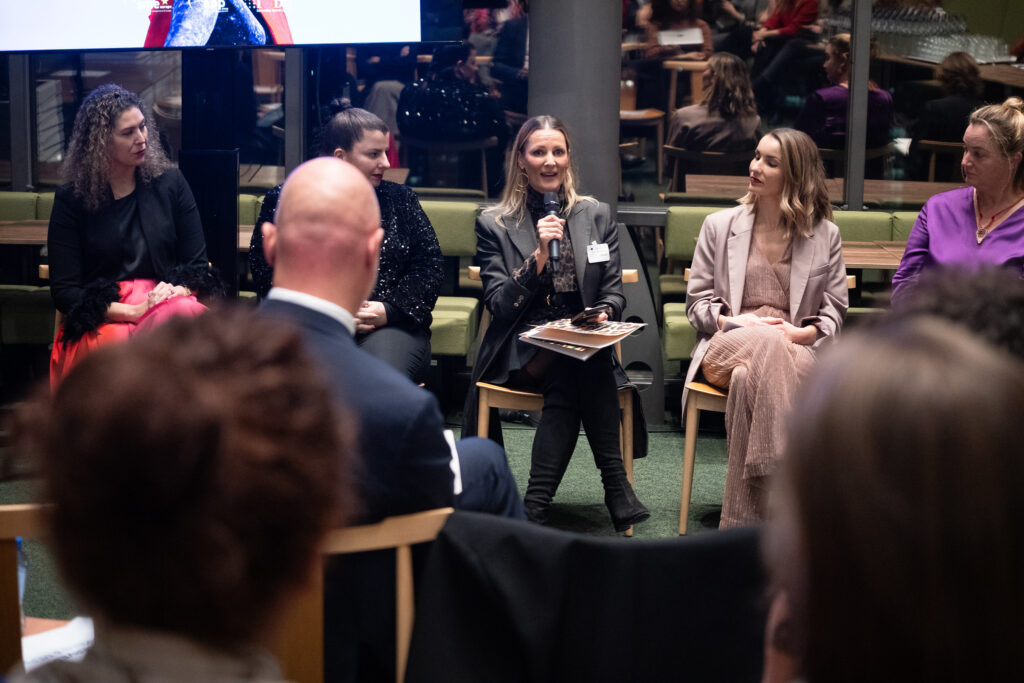
Jennie Sinclair emphasized the persistent gender inequality in ownership, noting that men own twice as much as women in Sweden. She called for systemic changes, including a European fund for women entrepreneurs and revised banking directives to better accommodate women’s life cycles, such as family responsibilities. Jennie highlighted the need for female-led networks and proposed intergenerational teams to support younger entrepreneurs with the expertise of established female leaders, fostering a circular economy within female networks. She urged the EU to address these barriers and create a fairer entrepreneurial environment for women.
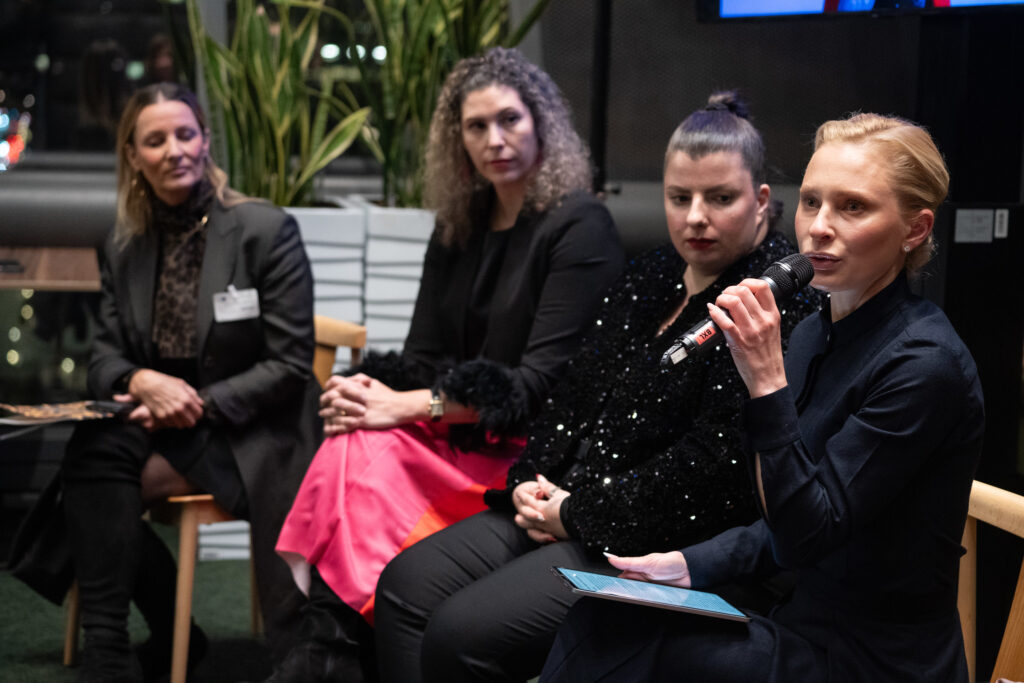
Olga Diakova, co-founder of Impact Force, highlighted the resilience of Ukrainian women who, despite war, have become key drivers of the economy, with over 36,000 women-led businesses registered in 2023. She emphasized programs like “Dream & Achieve” and “Restart Mindset”, which support women in building businesses and maintaining mental resilience. Olga praised a 2023 Ukrainian law granting soldiers free access to fertility preservation, a testament to women’s advocacy for their families’ futures. She urged the EU and global community to continue supporting Ukrainian women, whose leadership and innovation are vital for Ukraine’s recovery and a stronger Europe.
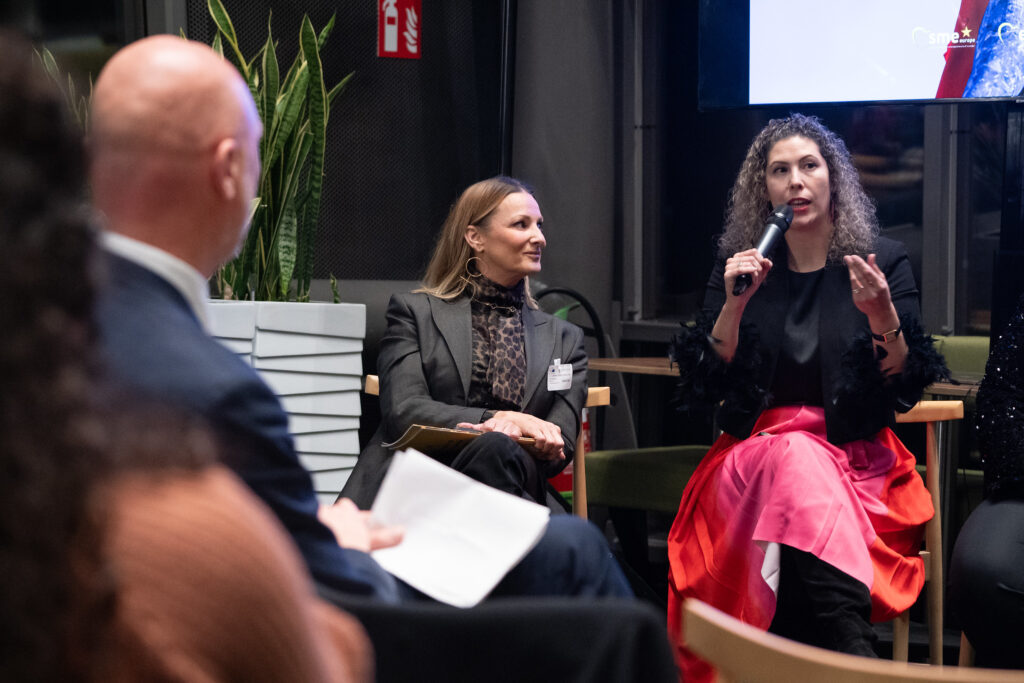
Georgia Brooks, founder of The Nine, highlighted the challenges women entrepreneurs face in Belgium, where only 15% are female, and just 7% view their experience positively. She emphasized barriers like high taxes, bureaucracy, and limited funding, which hinder business growth, sharing examples of entrepreneurs struggling to scale or manage during personal challenges. Through The Nine, Georgia champions women in business, supports female suppliers, and fosters a community focused on gender equality. She urged for streamlined systems and greater support to help women translate ideas into action and thrive in Belgium’s entrepreneurial landscape.
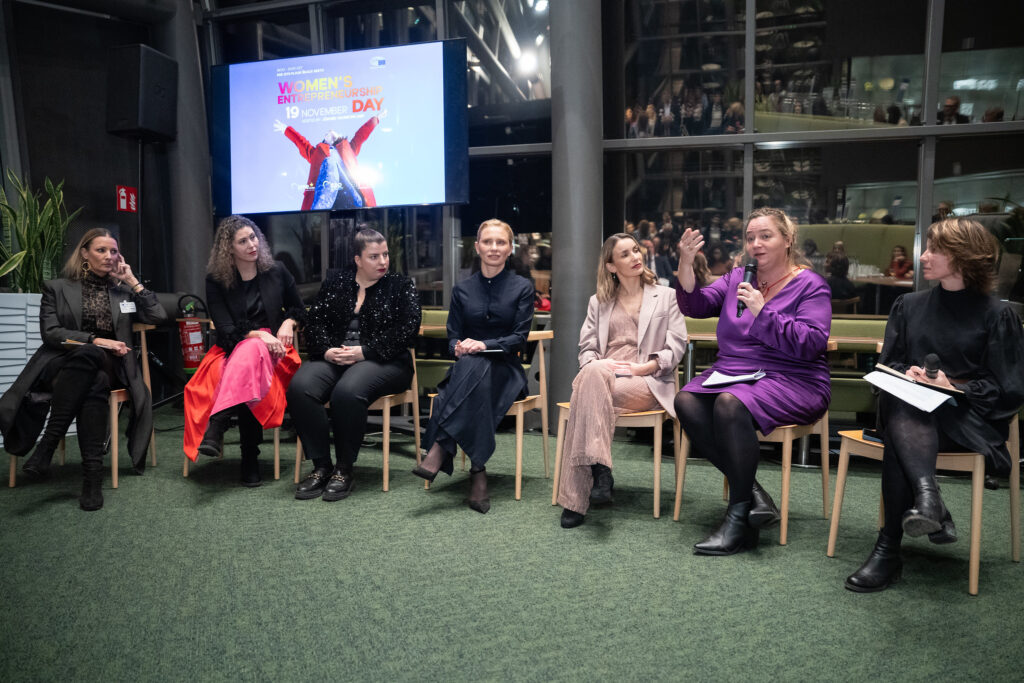
Florence Raes, Director of UN Women Brussels, highlighted the critical role of women’s economic empowerment in achieving gender equality and driving global progress. Drawing from her experience across continents, she emphasized the need for inclusive policies that address structural barriers such as the care economy and access to finance, which disproportionately affect women. She called for financial systems to adapt to women’s needs, rather than forcing women to conform to rigid existing structures. Florence stressed that empowering women is not only a matter of rights but also economic sense, with inequalities costing nations up to 10% of GDP. She advocated for scaling innovative grassroots solutions and engaging the private sector alongside public policies to create enabling environments. Concluding, she warned of a global pushback on women’s rights, underscoring that economic autonomy is essential for safeguarding gains and building a more equitable society.
The evening concluded with an engaging audience Q&A, highlighting the activism and urgency surrounding female entrepreneurship in our local communities, regions, and across Europe. Recognizing the importance of this topic, we are committed to organizing follow-up initiatives to track progress and advance impactful policies that drive meaningful change for female entrepreneurship throughout the EU.
